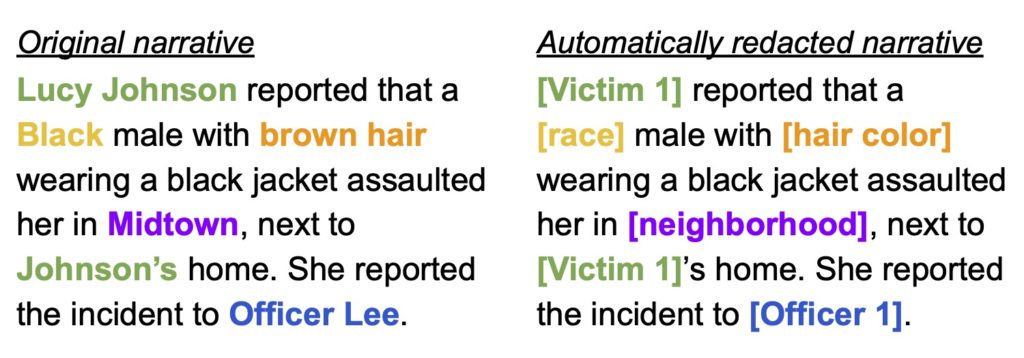Jan 19, 2022
Mitigating Potential Bias in Charging Decisions with Automated Race Redaction
Prosecutors have nearly absolute discretion to charge or dismiss criminal cases. There is concern, however, that these high-stakes judgements may suffer from explicit or implicit racial bias, as with many other such actions in the criminal justice system.
To reduce potential bias in charging decisions, the Stanford Computational Policy Lab (SCPL) designed a new algorithm that automatically redacts race-related information from free-text case narratives. In a groundbreaking initiative, SCPL worked with the Yolo County District Attorney’s Office to incorporate this algorithm in their charging workflow and help prosecutors make race-obscured charging decisions on incoming misdemeanor and felony cases. The redacted case files provided by the algorithm expose little additional information about one’s race compared to the information one can infer from the alleged crime alone. SCPL is working to expand the use of this algorithm to other jurisdictions across the nation, with an eye toward a wider open-source release of the tool.
To our knowledge, this is the first time a DA’s office has ever built a race redaction algorithm directly into their case management system. The Yolo DA’s Office has spent hundreds of hours collaborating with SCPL integrating the algorithm into the DA’s digital case management system so that race-obscured charging decisions become automatic and part of the DNA of how the office reviews cases.
Alex Chohlas-Wood, the executive director of the Stanford Computational Policy Lab, added, “The Stanford Computational Policy Lab is pleased that the Yolo County District Attorney partnered with our lab to expand the use of our race redaction algorithm. In the coming months, we will measure any impacts it may have on reducing potential bias in charging decisions in Yolo County.”


